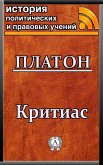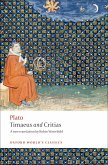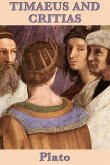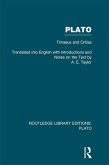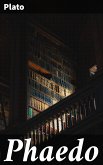In "Critias," Plato presents a compelling dialogue that explores the ideals of societal organization and justice, framed within the mythic tale of Atlantis. This work showcases Plato'Äôs distinctive literary style, marked by philosophical inquiry and rich allegorical imagery. Set against the backdrop of his broader project in works like "The Republic," the dialogue juxtaposes ideal governance with the historical failures of actual states, offering profound insights into human nature and political theory. The narrative is both a philosophical treatise and a captivating story, as Critias recounts the rise and fall of a once-great civilization, providing fertile ground for discussions on morality, power, and the fragility of societal ideals. Plato, a pivotal figure in Western philosophy, was greatly influenced by the socio-political turmoil of Athens, which inspired his reflections on virtue and governance. His philosophical endeavors were largely shaped by his experience as a student of Socrates and his eventual disillusionment with Athenian democracy following the execution of his mentor. This context deeply informs "Critias," as it serves both as a cautionary tale and a visionary exploration of excellence in political structures. "Critias" is an essential read for those invested in political philosophy, ethics, and the cultural tales that shape human understanding. With its rich historical context and philosophical depth, this dialogue invites readers to reflect on the lessons of Atlantis that resonate within our contemporary societal structures. Plato'Äôs masterful prose compels one to examine and critique the very foundations of civilization, making this text a timeless exploration of idealism versus reality.
Dieser Download kann aus rechtlichen Gründen nur mit Rechnungsadresse in A, B, BG, CY, CZ, D, DK, EW, E, FIN, F, GR, H, IRL, I, LT, L, LR, M, NL, PL, P, R, S, SLO, SK ausgeliefert werden.



